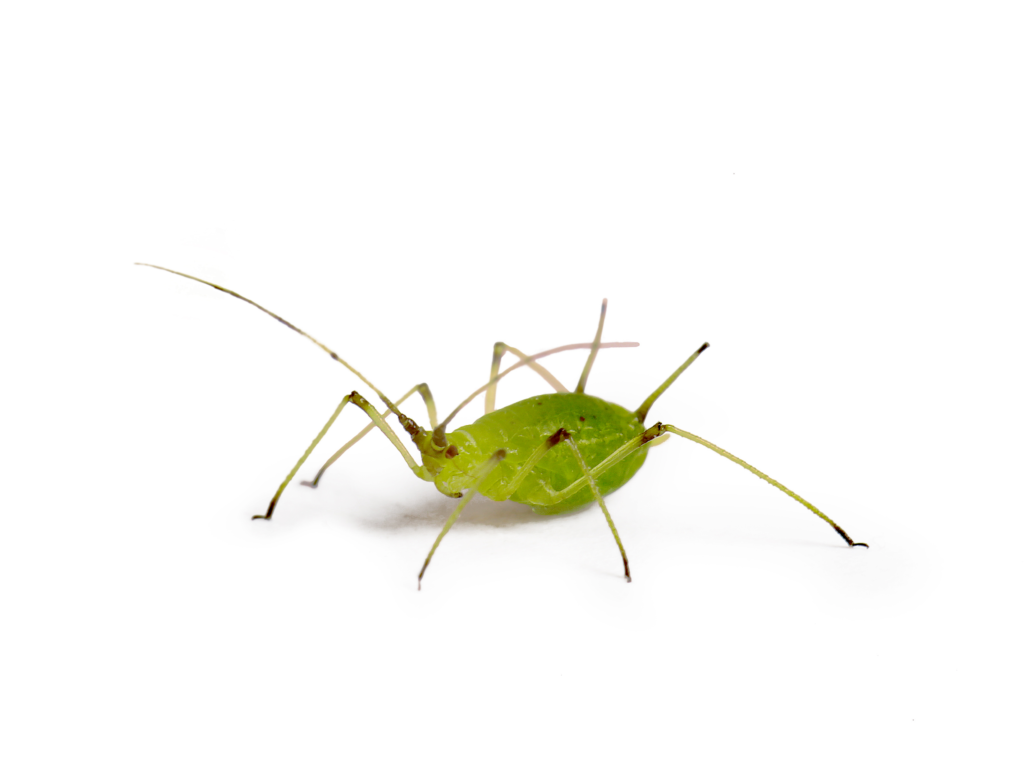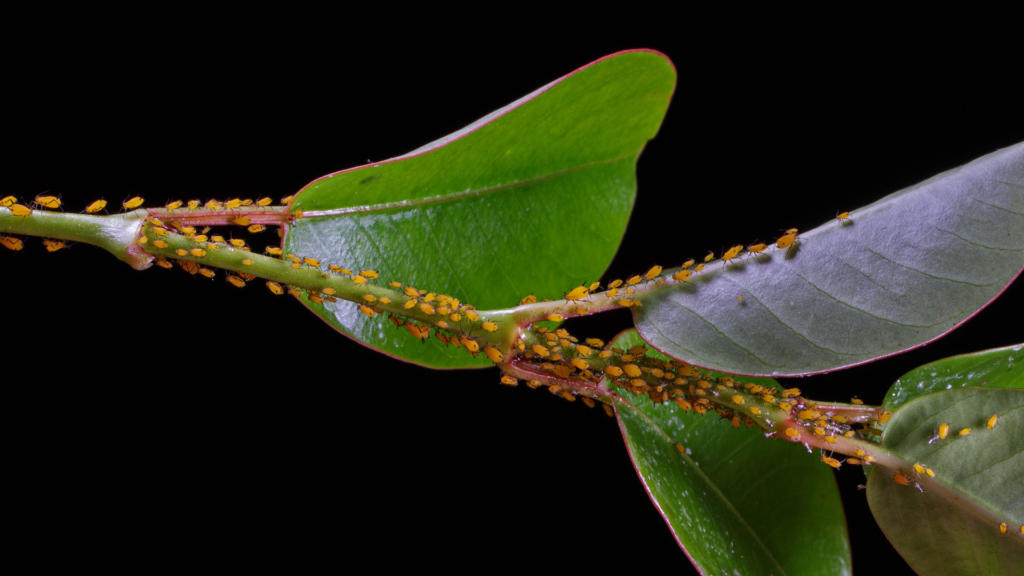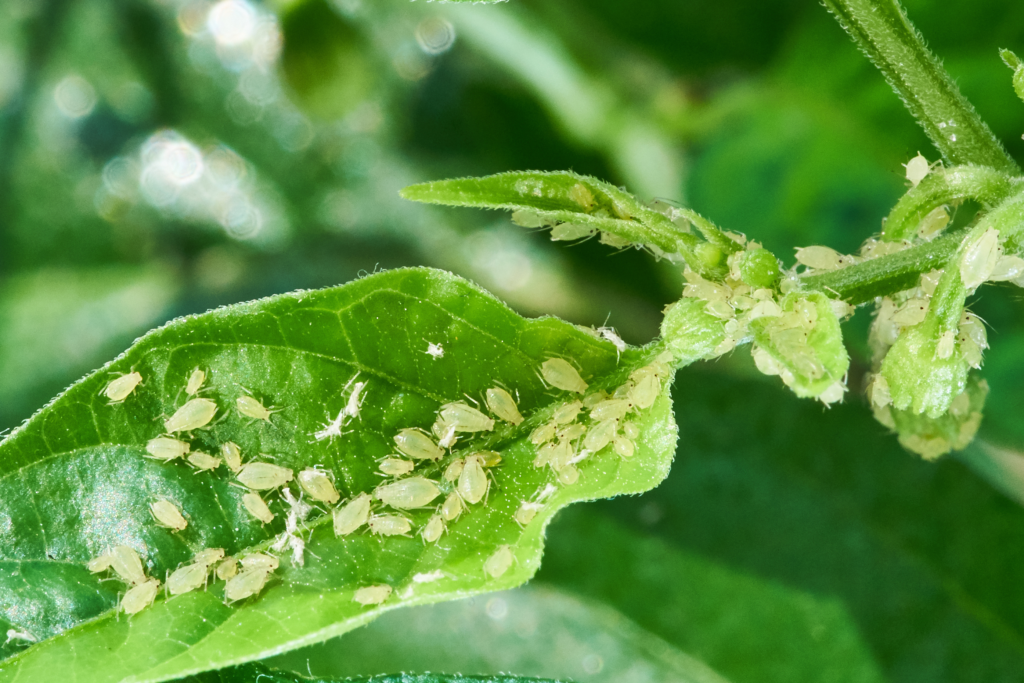Aphids: How They Feed, Reproduce, and Impact Your Garden
Aphids are small insects that feed on the sap of plants and are typically found on the undersides of leaves or in clusters on stems. There are over 4,000 species, ranging in color from green to black to pink. Unfortunatly, they are also a common pest in gardens and can cause a lot of damage to plants if not controlled.
Need Help With Pest Control?
Feeding Habits
Aphids feed on the sap of plants using their mouthparts, which are specially adapted to pierce and suck the sap from the plant. They typically feed on the soft tissue of leaves, stems, and flowers. This feeding behavior can cause distortion and discoloration of the leaves and can even kill the plant if the infestation is severe.
Reproduction
Aphids are prolific reproducers and can quickly build up a large population. Females can give birth to live offspring without mating, and each female can produce up to 80 offspring in a week. This rapid reproduction can quickly lead to an infestation if left unchecked.
Impact of Aphids on Your Garden
Aphids can cause a lot of damage to your garden plants, including stunted growth, wilting, and death.
They excrete a sticky substance called honeydew, which can attract other pests like ants and cause fungal diseases to grow. Overall, an aphid infestation can be detrimental and its best to stop it before it starts.
Identifying Aphids in Your Garden
Identifying aphids in your garden can be challenging, as they are very small and can blend in with the plant. However, there are a few signs that you can look for:
- Clusters of small insects on the plant
- Sticky honeydew on the plant or on the ground below
- Distorted or discolored leaves
- Wilting or stunted growth of the plant
They feed on the sap of plants, using their specialized mouthparts to pierce the plant’s tissue and suck out the sap. They feed on a variety of plants including flowers, vegetables, fruits, and trees.
They reproduce both sexually and asexually. Female aphids are capable of producing numerous offspring without mating, a process known as parthenogenesis. In some species, males are not even present. During sexual reproduction, males mate with females to produce eggs that will hatch into a new generation of aphids.
Aphids are small, pear-shaped insects that are usually green or brown in color. They are typically found on the undersides of leaves or clustered near the growing tips of plants. Signs of an infestation include distorted or curled leaves, sticky residue on leaves and stems (known as honeydew), and the presence of ants on plants (as ants are attracted to honeydew).
They can cause significant damage to plants by weakening them and stunting their growth. They can also transmit viruses to plants, which can cause further damage. Severe infestations can lead to the death of the plant.
There are several natural ways to control aphids in your garden, including introducing beneficial insects such as ladybugs or lacewings, spraying plants with a mixture of water and dish soap, using neem oil or garlic spray, and planting companion plants such as marigolds or garlic, which are known to repel aphids. Additionally, maintaining good garden hygiene by regularly pruning dead or damaged plant material and removing weeds can help prevent aphid infestations.










